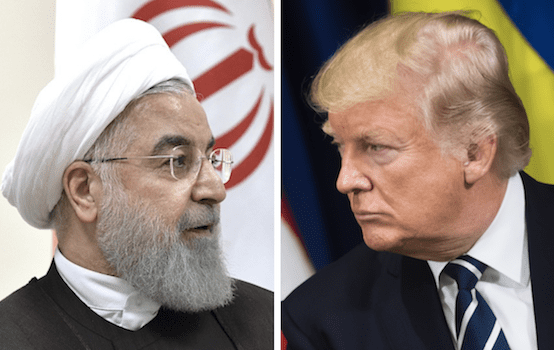‘Maximum Pressure’ Always Provokes Resistance

The Iranian government isn’t buying Pompeo’s empty rhetoric:
Rouhani was quoted by the government’s official website as saying: “The other side that left the negotiating table and breached a treaty should return to normal state. Until then, we do not have a choice but resistance.”
Rouhani’s response isn’t surprising, but it is significant that he president who has been so closely identified with the previous policy of engagement with Western governments feels compelled to take this position. Even Iranian proponents of dialogue see no point in talking to the U.S. because the administration has given them every reason to regard the U.S. as untrustworthy and unreliable. There won’t be any new negotiations until the U.S. moves to repair the breach that the Trump administration caused, and that would mean completely reversing everything they have done since last year. As far as the Iranian government is concerned, Trump created the current impasse and it is up to the U.S. to make amends.
Rouhani’s statement reflects the increasing pressure that he has come under from domestic opponents over the last two years. The political landscape inside Iran has changed to Rouhani’s detriment since he was re-elected, and public opinion has become much more hostile to the idea of negotiating with the U.S. No political leader can be seen as advocating for new negotiations with Washington after the Trump administration violated the deal and started waging economic war on the entire country. Al-Monitor reports on how the “maximum pressure” campaign has soured Iranians on the U.S.:
Nonetheless, it is undeniable that Iranian society is increasingly disinclined toward diplomacy and dialogue. Back in 2013, Rouhani entered office on a platform of more engagement with the West and a settlement of the nuclear standoff. Today, even the moderate president has come to realize that rapprochement with the current US administration is no longer favored by political elites and many ordinary Iranians.
“Anti-Americanism has grown tremendously in Iran,” Ghadir Nasri, a professor of political science at Kharazmi University, told Al-Monitor.
One of several reasons for this increase in anti-Americanism is the effect that sanctions are having on Iranians’ access to humanitarian goods, especially medicine. Tahereh Hadian-Jazy reports on how sanctions are driving up prices for medicine and in some cases making the medicines they need unobtainable:
Medicine is supposed to be exempt from the sanctions. Yet Europeans companies and banks have refused to participate in financial transactions involving pharmaceuticals out of fear of US secondary sanctions.
Iran has frequently complained that this is a deviation from international law and human rights because it targets ordinary people. A recent case study pointed out that sanctions have also negatively impacted the production of drugs within Iran because the active ingredients of most medicine manufactured in Iran are imported.
Many people complain that the price of medicine has increased significantly in three phases since last year and that many live-saving drugs have become scarce in the market.
If this were being done to our country by a hostile foreign government, it is only natural that we would resent that government and view it with distrust. Our leaders feign concern for the welfare of ordinary Iranians, but their policies are preventing these same people from obtaining essential medicines at the same time that they are wrecking the broader economy. The fact that these punishing sanctions have been imposed in spite of Iranian compliance with the JCPOA just makes the insult that much greater. The administration’s destructive Iran policy is doing great harm to the Iranian people right now, and it is further poisoning relations between the U.S. and Iran over the longer term. Even if the U.S. reverses course and abandons its economic war on the people two years from now, the experience of the increased hardship and misery caused by U.S. policy will shape public attitudes inside Iran for many years to come.
Comments